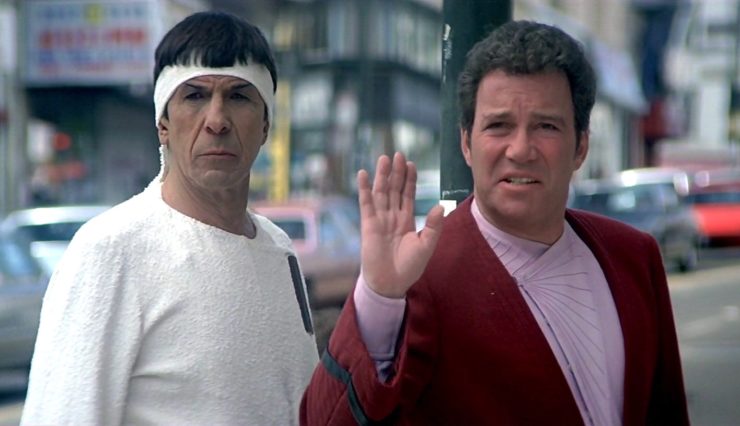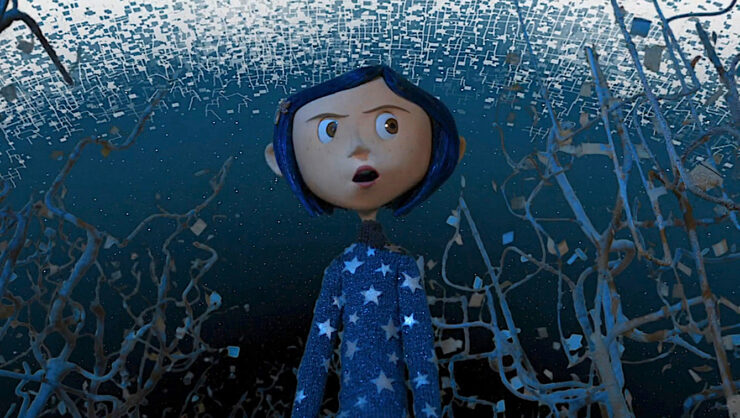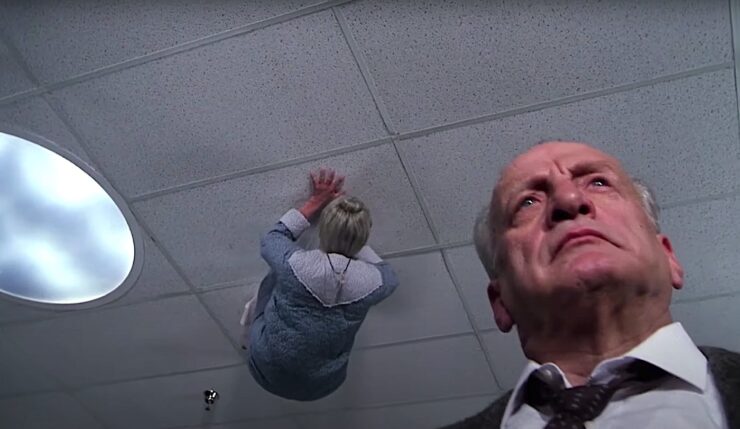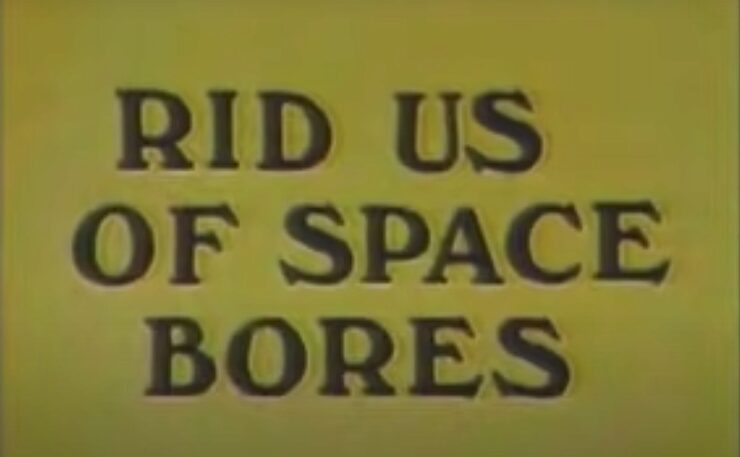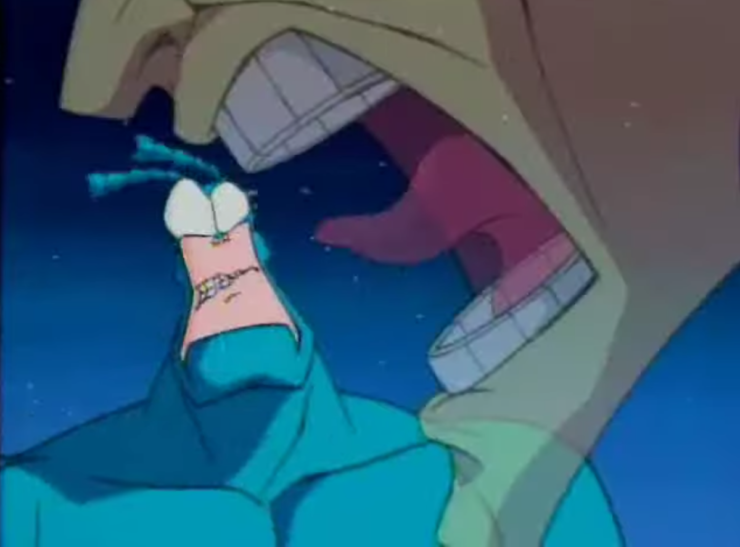Welcome to Close Reads! In this series, Leah Schnelbach and guest authors will dig into the tiny, weird moments of pop culture—from books to theme songs to viral internet hits—that have burrowed into our minds, found rent-stabilized apartments, started community gardens, and refused to be forced out by corporate interests. This time out, the incomparable Emmet Asher-Perrin meditates upon an important moment in The One with the Whales.
Up until more recent iterations, the state of art was something of a puzzlement in Star Trek. Here we are in a big, bold future where humanity has cast aside differences and works together toward mutual enlightenment, but film and television seem to have vanished from the collective consciousness—and the literature canon enjoyed by most Starfleet officers largely consists of Shakespeare, Doyle, Dickens, and the occasional smoky holodeck noir.
Which is why, in actuality, the greatest moment in Star Trek history occurs in 1986, on a bus in San Francisco.
Before I get into that, I will acknowledge that there are exceptions to this rule, of course. (See: Doctor Bashir’s James Bondian knock-off holosuite program.) But that doesn’t change the fact that Star Trek largely avoids the appearance that their characters could appreciate anything falling under the moniker of “vulgar” or “trashy.” Their approved canon is built predominantly of works that would be welcome in any Western high school English class syllabus. It’s fun at times, but not particularly inspired, and certainly not as broad-minded, encompassing, and cultured as Trek often proclaims itself to be.
There are certain real-life considerations behind that, which are more than fair; if you start acknowledging pop culture too much in your pop culture television series, you run the risk of crossing wires—or even worse, pointing out the places where your own plots and conceits fall flat. No one wants a character to have enough fictional awareness to avoid problems or suggest solutions by citing their favorite film because then you’re constantly bogging down your stories with too much meta-awareness… especially when you exist on television and episodic arcs are your toasted bread and fresh creamery butter. Even more so when you live in a super special future where everyone is purportedly smart enough to come up with these ideas on their own. (Well, smart enough and also housed enough and fed enough and educated enough and healthcared enough and work-life-balanced enough and curious enough and gosh darn, this future sounds great, when do I get one?)
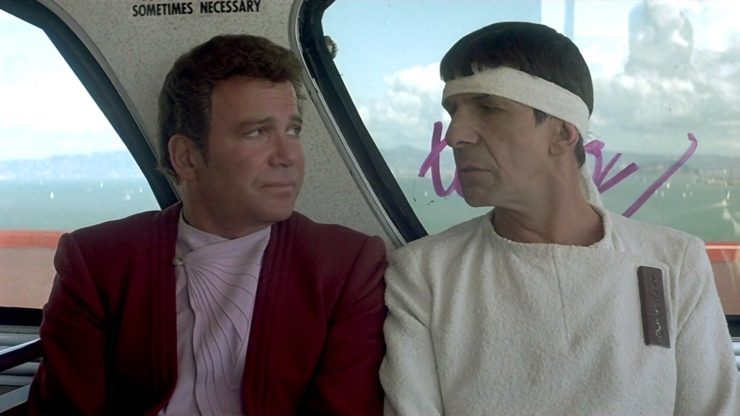
This has the unfortunate side effect of suggesting that not only does everyone in the future largely subscribe to a completely Westernized canon, but also that no one enjoys (never mind appreciates) anything a little less intellectually rigorous. And that’s already a strange leaping off point because, as any good historian or theatre scholar will tell you, Shakespeare was not considered highbrow entertainment when it was first staged—it was also pop culture, designed to appease the masses just as much as the reigning monarch. So were Dickens and Doyle. So the point really becomes that, for whatever reason, people several hundred years in the future are only enamored with relatively ancient pop culture, and nothing that even approaches their own era. It’s so gauche, don’t you see.
I’m not saying that all 20th century art maybe somehow got erased due to World War III, but I’m kind of saying that?
The real point is that this would be equivalent to folks in the 21st century walking around quoting The Decameron to our friends, on our way the cineplex to watch yet another adaptation of Dante’s Inferno, and remembering that when we get home, we’ve got yet another reboot of The Canterbury Tales to stream on TV. It’s that wide of a remove, and treated as totally commonplace within their universe.
This is why it is some flavor of miraculous to watch Star Trek IV: The Voyage Home, and see the Enterprise crew amongst such banal 20th century surroundings. They’d pulled missions like this before, of course (thanks to Gary Seven and the Guardian of Forever and that one Air Force dude in 1969), but never with such a level of immersion and movement available to them and to the audience. Never with the chance to get aboard public transportation in the Bay Area and encounter a mohawked punk with a boombox—who gladly flips them off when Kirk requests that he turn his music down.
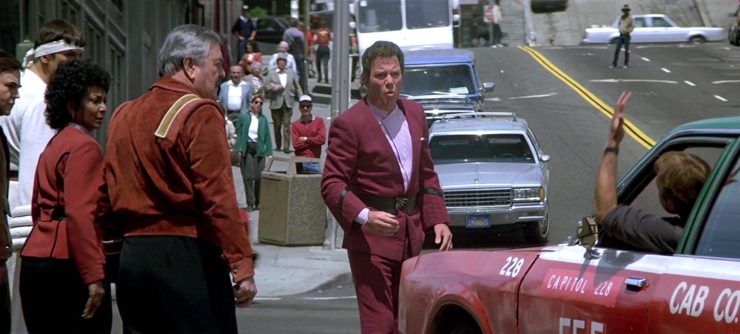
This is also after the admiral almost gets hit by a car crossing the street (which you’d think he would know to look out for considering how Edith Keeler died), only to be surprised when the driver leans out his window and suggests that he “Watch where you’re going, you dumbass!” Kirk is understandably surprised—his Chief Medical Officer regularly calls his half-Vulcan Science Officer a “pointed-eared hobgoblin,” but this is surely beyond pale for mere strangers. They haven’t even been introduced.
So he gamely shoots back with a “Well, double dumbass on you!” and continues on his elevated, world-saving way.
The fact that cursing seems to be the rule of the day proves a minor fascination to Spock, however, who takes the time to bring the subject up with his admiral after nerve-pinching the bus punk into a pleasant slumber. (The guy probably misses his stop as a result, so hopefully he doesn’t have any world-saving plans that day.) In pointing out the sharp increase in “colorful metaphors,” as he terms them, Spock gives Kirk the opportunity to explain that it’s common in this particular era of human history to use swear words more frequently as emphasis and embellishment. (Again, I’m going to skip over the fact that, just as Shakespeare used to be considered lowbrow entertainment by many, humans have always cursed freely in the service of expression. Check the walls of Pompeii.) When he adds that it was particularly common for the literature of the period, Spock asks for examples.
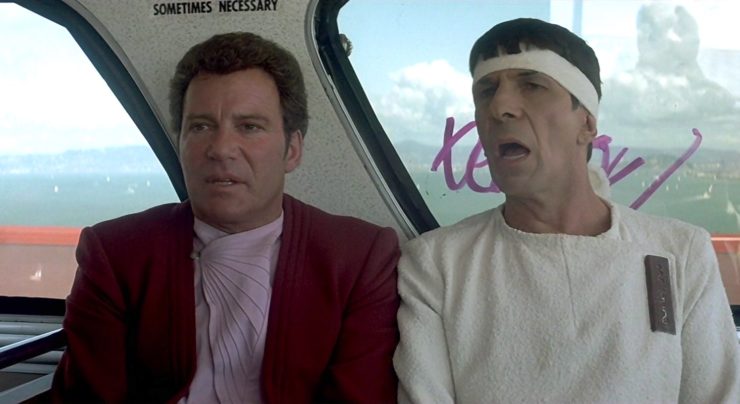
“Oh, the complete works of Jacqueline Susann,” says Kirk thoughtfully, “the novels of Harold Robbins…”
“Ah…” Spock replies in immediate recognition. “The Giants.”
Someone do a record scratch! Or just, you know, imagine you heard one.
Look, Jim Kirk is a canonical bookworm and Spock is generally learned in a wide variety of subjects, so it’s not completely shocking that one of them has read The Carpetbaggers. I can buy that. It seems plausible. As far as I’m concerned, Kirk is a secret romance novel buff (he’s a sap who makes eyes at all his favorite people constantly), and Spock probably has a very intelligent system where he reads two or three sample books per decade of human history (in the periods where humans produced something approaching literature), for better historical understanding. He is half-human, after all, and his mother was probably proud of the effort, even if the Vulcans turned their collective noses up at his after-school hobbies.
But Spock calling Susann and Robbins “the Giants,” is another matter entirely. It suggests that these works are respected in the future—when both authors were often and roundly ridiculed by the literary establishment during their careers, despite being some of the best selling writers of the era. It suggests that both Kirk and Spock are well aware of their tawdry oeuvres with all the cursing, sex, and drug-use contained therein.
It suggests that Spock has read Valley of the Dolls. And he liked it.
I care about that so much more than the fact that he can cite Hamlet act by scene. I care about it so much more than his ability to play the Vulcan harp. Spock knows there are no guilty pleasures, only things that you enjoy, and now I need his reading list—not the Federation approved one that probably goes in all his future biographies, but the one he shared with Uhura during jam sessions in the Enterprise rec room. Is Bridget Jones’s Diary on it? Delta of Venus? Outlander? Does he have opinions about Twilight?
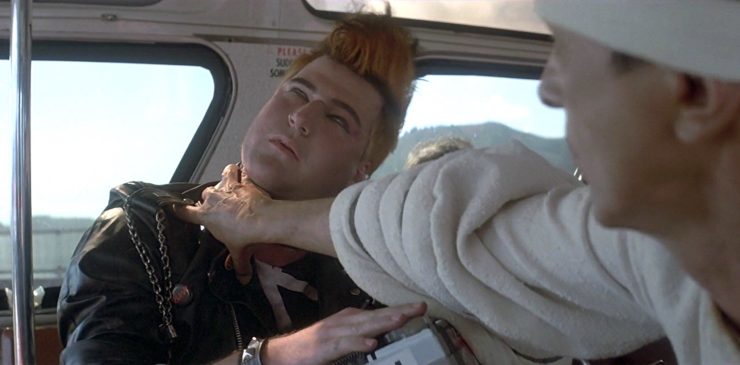
But there’s another angle to this that gets me a little teary, being that Susann and Robbins are both Jewish authors. So having Leonard Nimoy, himself a Jewish actor, commenting on the legacies of these two, calling them “giants” in their field… that hits a little different on a contextual level. It doesn’t matter whether it was intentional in the script or not—and it certainly might have been—the point of connection is there. The moment of recognition between generations of Jewish artists sits in the midst of this eclectic romp of a film, staring you in the face, blinking emphatically.
It’s hard for me not to feel a bit emotional over that.
And it goes one further, because I can’t help but suspect that Nimoy might have felt an affinity toward both of these authors. Difference of content not withstanding, he occupies a similar space in the cultural zeitgeist: an actor in a pop culture juggernaut that, for many years, was not taken at all seriously by arbiters of culture and class. When all of this started, Star Trek was a weird space show, beloved by oddballs. It was unclear what its impact would be before a late-century renaissance guaranteed its longevity.
There was a period where this uncertainty caused Nimoy visible distress, as a man who was quite thoughtful and serious about the art he put into the world. (He was a writer and a photographer, too, mind you.) But he seemed to make peace with his position in later years, to recognize its value. He is a member of a rarefied sphere of artists who managed to shape our future with work that many might have once called pedestrian. You know, the trashy, vulgar stuff that people shouldn’t put in their syllabi.
Ah, yes… the Giants.
Emmet Asher-Perrin always needs to mention that Star Trek IV was the very first film they ever saw in the movie theater, as an infant, and apparently they cheered the freeing of the whales. You can bug them on Twitter, and read more of their work here and elsewhere.










